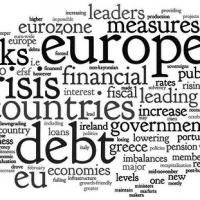-
Foxconn: playing fast and loose in Wisconsin
When state and local governments bid for corporate investment, working people lose. It is as simple as that. And Foxconn’s on-again, off-again, and on-again shrinking investment in Wisconsin is a case in point.
-
Everyday life in besieged Venezuela
A young author presents intimate snapshots of ordinary life as it is lived by millions of Venezuelans during a grueling crisis fueled by deadly U.S. sanctions and coup efforts.
-
Trump abandons INF treaty
Watch our video to find out about the latest decision. Trump has announced that he will withdraw the U.S. from the INF treaty. This treaty has been a bedrock of nuclear arms control, having eliminated thousands of deadly nuclear missiles in Europe. This is a very dangerous moment for the whole world. A new nuclear arms race is […]
-
Peculiarities of U.S. imperialism in Latin America
Venezuela, the current target of U.S., President Donald Trump, is a case illustrating the ‘peculiarities’ of imperialist politics. We will proceed to outline the background, techniques and impact of the imperial power grab.
-
Russia denounces U.S. cynicism sanctioning Venezuelan PDVSA
Russia denounced Tuesday the U.S. cynicism by announcing sanctions against the Venezuelan oil company PDVSA and excluding from that sanction U.S. companies operating in the South American nation.
-
The making of Juan Guaido
Juan Guaidó is the product of a decade-long project overseen by Washington’s elite regime change trainers. While posing as a champion of democracy, he has spent years at the forefront of a violent campaign of destabilization.
-
The U.S. coup in Venezuela: new attempt to eradicate the Chavista Revolution
For over two years we have been told Putin’s Russia has interfered with the 2016 U.S. presidential elections. We now find the U.S. government has decided it can unilaterally invalidate the actual presidential elections in Venezuela and recognize a person of its choosing as president.
-
Maduro denounces Citgo takeover as ‘robbery’
Venezuelan president Nicolas Maduro says he plans to take legal action against the United States to defy the sanctions.
-
AGO proposes nationwide raids on books containing ’banned ideas’
Attorney General Muhammad Prasetyo is proposing that massive raids be carried out to hunt down books which contain communist teachings and banned ideologies. The proposal was made after the seizure of hundreds of books around the country allegedly containing “banned ideas”. — Taufiq Siddiq, Jakarta “I’m proposing that if possible, yes massive raids be carried […]
-
The challenges for the European left regarding debt and the banks
The policy of Quantitative Easing (QE) has been implemented by the ECB since 2015 in the wake of what the Fed had done in the U.S. from 2008 to 2014. It consists of massively purchasing private and public debt securities from banks in the Eurozone and from corporations.
-
Washington follows Ukraine, Syria roadmap in push for Venezuela regime change
What happens in Venezuela going forward will have major consequences for the entire region and the world; and, with the U.S. already pushing countries to pick sides, the world may soon become as divided as it was immediately preceding WW II.
-
Some early lessons from the Los Angeles teachers strike
Corporate media absolutely won’t tell you this, but this year’s Los Angeles teachers strike is the latest chapter in the long running struggle against the privatization of public education in the U.S
-
The radicalization of U.S. policy on Venezuela
Steve Ellner examines the Trump Administration’s recognition of a shadow government and, in so doing, the U.S.’s violation of international law.
-
A new abnormal
Humanity now faces two simultaneous existential threats, either of which would be cause for extreme concern and immediate attention. These major threats—nuclear weapons and climate change—were exacerbated this past year by the increased use of information warfare to undermine democracy around the world, amplifying risk from these and other threats and putting the future of civilization in extraordinary danger.
-
Erik Olin Wright (1947–2019)
Erik Olin Wright was radicalized in the 1960s and remained a Marxist because his moral compass simply wouldn’t allow him to drift away. With his death, the Left has lost one of its most brilliant intellectuals.
-
In their tenth week of protests, Yellow Vests face brutal police crackdown
Reports say that the Disarm collective, a local group that campaigns against police violence, has counted 98 cases of serious injuries till now, including 15 cases of people losing an eye to rubber bullets.
-
Rosa Luxemburg’s revolutionary socialism
Luxemburg was born in 1871, in a Poland divided under German and Russian domination, and she played a role in the working-class socialist movement of each country.
-
Trump recognition of rival Venezuela government will set off a diplomatic avalanche
The Trump administration’s January 23 recognition of Venezuela’s National Assembly leader, Juan Guaidó, as the president of Venezuela, in opposition to the “de facto” and “de jure” president of Venezuela, Nicolas Maduro, threatens an avalanche of nations recognizing leaders of various political factions in countries around the world as legitimate governments.
-
‘Today, capitalism has out-lived its usefulness’: Martin Luther King
MARTIN LUTHER KING spoke with vision against capitalism, and about the kind of changes needed to replace it: the following quotes reflect some of King’s key thoughts on the subject as US citizens mark Martin Luther King Day.
-
Dozens arrested in short-lived National Guard mutiny
The National Guardsmen who rebelled in Caracas early Monday morning have been arrested and are reportedly providing information to authorities.




















